19 sept 2017
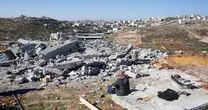
There is a great irony in the fact that Israel is seeking a seat at the United Nations Security Council (UNSC).
Since its establishment atop the ruins of Palestinian cities and villages in 1948, Israel has had the most precarious relationship with the world’s largest international body.
It has desperately sought to be legitimized by the UN, while it has done its utmost to delegitimize the UN.
Following a resolution at the UN Human Rights Council (UNHRC) condemning Israel’s human rights abuses in the Occupied Palestinian Territory in March 2014, Israeli Prime Minister, Benjamin Netanyahu, then accused the UN of being ‘absurd’. He vowed to “continue to denounce and expose” the UN “procession of hypocrisy.”
For many years, Israeli leaders and government officials have made it a habit of undermining the UN and its various bodies and, with unconditional support from Washington, habitually ignored numerous UN resolutions regarding the illegal occupation of Palestine.
To a certain extent, the Israeli strategy – of using and abusing the UN – has worked. With US vetoes, blocking every UN attempt at pressuring Israel to end its military occupation and human rights violations, Israel was in no rush to comply with international law.
But two major events have forced an Israeli rethink.
Read More: Bennett: Jordan Valley is ‘inseparable part’ of Israel
First, in December 2016, the US abstained from a UN resolution that condemned Israel’s illegal settlement activities in the Occupied Palestinian Territories.
By breaking with a decades-long tradition of shielding Israel from any international censure, it appeared that even Washington’s seemingly undying allegiance to Tel Aviv was uncertain.
Second, the rise of the Palestinian-led Boycott, Divestment and Sanctions (BDS) movement began changing the dynamics of international politics regarding the Israeli occupation.
The movement, which began as a call by Palestinian civil society to hold Israel accountable for its violations of Palestinian human rights, grew rapidly to become a global movement. Hundreds of local BDS groups multiplied around the world, joined by artists, academicians, union members and elected politicians.
Within a few years, BDS has registered as a serious tool of pressure used to denounce the Israeli occupation and demand justice for the Palestinian people.
UNHRC quickly joined in, declaring its intention to release a list, thus exposing the names of companies that must be boycotted for operating in illegal Israeli settlements.
The human rights group’s efforts were coupled by repeated condemnations of Israel’s human rights violations as recorded by the UN cultural agency, UNESCO.
This meant that UN bodies that do not allow for veto-wielding members grew in their ability to challenge the UN Security Council.
The actions of UNHRC and UNESCO spurred a determined Israeli-American campaign to delegitimize them.
Since the Donald Trump Administration’s advent to power, and with the help of his ambassador to the UN, Nikki Haley, Washington has waged a war against the UN, using intimidation and the threats of withholding funds.
Read More:Al-Aqsa Mufti: Teaching Israel’s syllabus is ‘haram’
UNESCO insisted on its position, despite the cutting off of funds. Meanwhile, UNHRC decided to go along with publishing the list of companies, despite US threats to pull out of the human rights body altogether.
According to Israel’s Channel 2, the list includes Coca-Cola, TripAdvisor, Airbnb, Priceline and Caterpillar. It also includes national Israeli companies and two large banks.
Israeli officials fumed. Deputy Foreign Minister Tzipi Hotovely charged that “The UN is playing with fire”, threatening that such initiative will cause further loss of UN budget.
She even declared that the US and Israel are working together to start a ‘revolution’ at the Human Rights Council through a joint ‘action plan.’
Signs of this oddly termed ‘revolution’ are already apparent. Aside from choking off UN bodies financially, Israel is lobbying countries in the South that have traditionally exhibited solidarity with Palestinians due to the common historical bonds of foreign oppression and anti-colonial struggles.
Netanyahu had just concluded a trip to Latin America, considered the first by a sitting Israeli Prime Minister. In the last leg of his trip in Mexico, he offered to ‘develop Central America.’
The price is, of course, for Latin American countries to support Israel’s occupation of Palestine and turn a blind eye to its human rights violations in Palestine.
The irony that, fortunately, did not escape everyone is that last January, Netanyahu declared his support of Trump’s promise to wall off the US-Mexico border and force Mexico to pay for it.
It remains to be seen how Israel’s efforts will win Latin America to Israel’s side, considering the latter’s terrible record of supporting fascist regimes and subverting democracy.
The Israeli Prime Minister’s charm offensive was planned to include Togo in October to attend the Israel-Africa Summit. Thanks to the efforts of South Africa, Morocco, among other countries, the summit was cancelled due to the fact that over half of African countries were planning to boycott it.
The setback must have been a major diplomatic embarrassment for Tel Aviv as Netanyahu has made African diplomacy a pillar in his foreign policy. Last June, he visited Uganda, Kenya, Ethiopia, Tanzania and Rwanda. He was accompanied by a large delegation of business executives. Earlier in June, he promised African leaders at the Economic Community of West African States (ECOWAS) summit in Liberia to supply them with agricultural technology that would stave off droughts and food scarcity.
The price? According to African News Agency (ANA), “Israeli technology would solve Africa’s most urgent issues – as long as African nations opposed UN resolutions critical of Israel’s occupation of Palestine.”
Read More: Ignore the spin, the siege of Gaza endangers everyone, Israelis included, so end it now
Not all African leaders allowed themselves to be manipulated by Tel Aviv.
But the Israeli tactic is certainly becoming more defined and emboldened. Tel Aviv’s aim is to undercut the support of Palestinians at the UN General Assembly, and sabotage the work of UN bodies that exist outside the realm of US power.
Meanwhile, it also wants to secure a seat for itself at the UN Security Council. The assumption is that, with the support of Haley at the UN, such a possibility is not far-fetched.
In addition to the five-permeant veto-wielding UN Security Council members, ten-member countries are elected on a two-year term basis.
Israel’s charm offensive in Latin America, Africa and Asia is meant to ensure the needed vote to grant it a seat in the 2019-2020 term.
The vote will take place next year, and Israel will stand against Germany and Belgium.
Israel’s strategy of elevating its status at the UN can also been seen as an admission of failure of Tel Aviv’s antagonistic behavior. However, if Israel wins that seat, it is likely to use the new position to strengthen its occupation of Palestine, as opposed to adhering to international law.
It is unfortunate that the Arabs and the Palestinian Authority are waking up to this reality quite late. Israel has been plotting for this moment for years – since 2005 under the premiership of Ariel Sharon – yet the PA is only now requesting an Arab League strategy to prevent Israel from reaching that influential position.
What Palestinians are counting on, at the moment, is the existing historical support that the Palestinian people have among many countries around the world, especially in the global South.
Most of these nations have experienced colonization, military occupation and had their own costly and painful liberation struggles.
They should not allow a colonialist regime to sit atop of the UN, obstructing international law while preaching to world about democracy and human rights.
Since its establishment atop the ruins of Palestinian cities and villages in 1948, Israel has had the most precarious relationship with the world’s largest international body.
It has desperately sought to be legitimized by the UN, while it has done its utmost to delegitimize the UN.
Following a resolution at the UN Human Rights Council (UNHRC) condemning Israel’s human rights abuses in the Occupied Palestinian Territory in March 2014, Israeli Prime Minister, Benjamin Netanyahu, then accused the UN of being ‘absurd’. He vowed to “continue to denounce and expose” the UN “procession of hypocrisy.”
For many years, Israeli leaders and government officials have made it a habit of undermining the UN and its various bodies and, with unconditional support from Washington, habitually ignored numerous UN resolutions regarding the illegal occupation of Palestine.
To a certain extent, the Israeli strategy – of using and abusing the UN – has worked. With US vetoes, blocking every UN attempt at pressuring Israel to end its military occupation and human rights violations, Israel was in no rush to comply with international law.
But two major events have forced an Israeli rethink.
Read More: Bennett: Jordan Valley is ‘inseparable part’ of Israel
First, in December 2016, the US abstained from a UN resolution that condemned Israel’s illegal settlement activities in the Occupied Palestinian Territories.
By breaking with a decades-long tradition of shielding Israel from any international censure, it appeared that even Washington’s seemingly undying allegiance to Tel Aviv was uncertain.
Second, the rise of the Palestinian-led Boycott, Divestment and Sanctions (BDS) movement began changing the dynamics of international politics regarding the Israeli occupation.
The movement, which began as a call by Palestinian civil society to hold Israel accountable for its violations of Palestinian human rights, grew rapidly to become a global movement. Hundreds of local BDS groups multiplied around the world, joined by artists, academicians, union members and elected politicians.
Within a few years, BDS has registered as a serious tool of pressure used to denounce the Israeli occupation and demand justice for the Palestinian people.
UNHRC quickly joined in, declaring its intention to release a list, thus exposing the names of companies that must be boycotted for operating in illegal Israeli settlements.
The human rights group’s efforts were coupled by repeated condemnations of Israel’s human rights violations as recorded by the UN cultural agency, UNESCO.
This meant that UN bodies that do not allow for veto-wielding members grew in their ability to challenge the UN Security Council.
The actions of UNHRC and UNESCO spurred a determined Israeli-American campaign to delegitimize them.
Since the Donald Trump Administration’s advent to power, and with the help of his ambassador to the UN, Nikki Haley, Washington has waged a war against the UN, using intimidation and the threats of withholding funds.
Read More:Al-Aqsa Mufti: Teaching Israel’s syllabus is ‘haram’
UNESCO insisted on its position, despite the cutting off of funds. Meanwhile, UNHRC decided to go along with publishing the list of companies, despite US threats to pull out of the human rights body altogether.
According to Israel’s Channel 2, the list includes Coca-Cola, TripAdvisor, Airbnb, Priceline and Caterpillar. It also includes national Israeli companies and two large banks.
Israeli officials fumed. Deputy Foreign Minister Tzipi Hotovely charged that “The UN is playing with fire”, threatening that such initiative will cause further loss of UN budget.
She even declared that the US and Israel are working together to start a ‘revolution’ at the Human Rights Council through a joint ‘action plan.’
Signs of this oddly termed ‘revolution’ are already apparent. Aside from choking off UN bodies financially, Israel is lobbying countries in the South that have traditionally exhibited solidarity with Palestinians due to the common historical bonds of foreign oppression and anti-colonial struggles.
Netanyahu had just concluded a trip to Latin America, considered the first by a sitting Israeli Prime Minister. In the last leg of his trip in Mexico, he offered to ‘develop Central America.’
The price is, of course, for Latin American countries to support Israel’s occupation of Palestine and turn a blind eye to its human rights violations in Palestine.
The irony that, fortunately, did not escape everyone is that last January, Netanyahu declared his support of Trump’s promise to wall off the US-Mexico border and force Mexico to pay for it.
It remains to be seen how Israel’s efforts will win Latin America to Israel’s side, considering the latter’s terrible record of supporting fascist regimes and subverting democracy.
The Israeli Prime Minister’s charm offensive was planned to include Togo in October to attend the Israel-Africa Summit. Thanks to the efforts of South Africa, Morocco, among other countries, the summit was cancelled due to the fact that over half of African countries were planning to boycott it.
The setback must have been a major diplomatic embarrassment for Tel Aviv as Netanyahu has made African diplomacy a pillar in his foreign policy. Last June, he visited Uganda, Kenya, Ethiopia, Tanzania and Rwanda. He was accompanied by a large delegation of business executives. Earlier in June, he promised African leaders at the Economic Community of West African States (ECOWAS) summit in Liberia to supply them with agricultural technology that would stave off droughts and food scarcity.
The price? According to African News Agency (ANA), “Israeli technology would solve Africa’s most urgent issues – as long as African nations opposed UN resolutions critical of Israel’s occupation of Palestine.”
Read More: Ignore the spin, the siege of Gaza endangers everyone, Israelis included, so end it now
Not all African leaders allowed themselves to be manipulated by Tel Aviv.
But the Israeli tactic is certainly becoming more defined and emboldened. Tel Aviv’s aim is to undercut the support of Palestinians at the UN General Assembly, and sabotage the work of UN bodies that exist outside the realm of US power.
Meanwhile, it also wants to secure a seat for itself at the UN Security Council. The assumption is that, with the support of Haley at the UN, such a possibility is not far-fetched.
In addition to the five-permeant veto-wielding UN Security Council members, ten-member countries are elected on a two-year term basis.
Israel’s charm offensive in Latin America, Africa and Asia is meant to ensure the needed vote to grant it a seat in the 2019-2020 term.
The vote will take place next year, and Israel will stand against Germany and Belgium.
Israel’s strategy of elevating its status at the UN can also been seen as an admission of failure of Tel Aviv’s antagonistic behavior. However, if Israel wins that seat, it is likely to use the new position to strengthen its occupation of Palestine, as opposed to adhering to international law.
It is unfortunate that the Arabs and the Palestinian Authority are waking up to this reality quite late. Israel has been plotting for this moment for years – since 2005 under the premiership of Ariel Sharon – yet the PA is only now requesting an Arab League strategy to prevent Israel from reaching that influential position.
What Palestinians are counting on, at the moment, is the existing historical support that the Palestinian people have among many countries around the world, especially in the global South.
Most of these nations have experienced colonization, military occupation and had their own costly and painful liberation struggles.
They should not allow a colonialist regime to sit atop of the UN, obstructing international law while preaching to world about democracy and human rights.
13 sept 2017
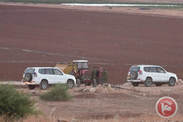
The United Nations Human Rights Council reportedly plans to go ahead with the publication of a list of companies operating in illegal Israeli settlements in the occupied Palestinian territory and the Golan Heights, in spite of immense diplomatic pressure from the United States and Israel.
According to a report published Tuesday by Israel’s Channel 2, the full list will be published in December, and will include some of the biggest firms in the Israeli industry as well as major US companies, a translation of the report from Times of Israel said.
Some of the international companies on the list reportedly include Coca-Cola, TripAdvisor, Airbnb, Priceline, and Caterpillar, in addition to Israeli companies such as pharmaceutical giant Teva, the national phone company Bezeq, bus company Egged, the national water company Mekorot, and the country’s two largest banks, Hapoalim and Leumi.
The list was recently delivered to the Foreign Ministry, the report said.
Last year, the United Nations Human Rights Council passed a resolution to support forming a database of all companies conducting business in illegal Israeli settlements in the occupied West Bank, amid fierce opposition by the United States and Israel.
The Washington Post previously reported that Zeid Raad al-Hussein, the UN high commissioner for human rights, said that the UN planned to publish the list by the end of this year, which prompted the Donald Trump administration to work with Israel to obstruct its publication.
However, according to the US newspaper, Israel and the United States had unsuccessfully attempted to block funding for the database.
PLO Executive Committee Member Hanan Ashrawi condemned the US and Israeli efforts at the UN as “morally repugnant” at the time.
The attempt “exposes the complicity of Israeli and international businesses in Israel’s military occupation and the colonization of Palestinian land,” Ashrawi said. “This is a clear indication of Israel’s persistent impunity and sense of entitlement and privilege.”
Ashrawi highlighted in her statement that Israel’s settlement activities constituted a “war crime” and were in direct violation of international law and several UN resolutions. “Any company that chooses to do business in the illegal settlements becomes complicit in the crime and therefore liable to judicial accountability,” she said.
Israeli Prime Minister Benjamin Netanyahu has complained that the list unfairly targets Israel and has noted that it was part of the larger Boycott, Divestment, and Sanctions (BDS) movement, which targets specific companies profiting off of Israel’s occupation of Palestinian territory and falls within the traditions of the nonviolent boycott movement against the apartheid regime in South Africa.
Israel and the United States have been starkly opposed to any move that could give weight to the BDS movement, and have often claimed that any support of a boycott against Israel amounts to anti-Semitism.
Israel has tightened the noose on the BDS movement in recent months, most notably by passing the anti-BDS law, which bans foreign individuals who have openly called for a boycott of Israel from entering the country.
Furthermore, Israel has routinely condemned the UN for what it sees as their anti-Israel stance, as numerous resolutions have been passed in recent months condemning Israel’s half-century occupation of the West Bank, including East Jerusalem, and its relentless settlement enterprise that has dismembered the Palestinian territory.
However, Palestinians and activists have long pointed out that nonviolent movements, expressed both in BDS activities and raising awareness on the international stage, are some of the last spaces to challenge Israel’s occupation, as Israeli forces have clamped down on popular movements in the Palestinian territory, leaving many Palestinians with diminished hope for the future.
According to a report published Tuesday by Israel’s Channel 2, the full list will be published in December, and will include some of the biggest firms in the Israeli industry as well as major US companies, a translation of the report from Times of Israel said.
Some of the international companies on the list reportedly include Coca-Cola, TripAdvisor, Airbnb, Priceline, and Caterpillar, in addition to Israeli companies such as pharmaceutical giant Teva, the national phone company Bezeq, bus company Egged, the national water company Mekorot, and the country’s two largest banks, Hapoalim and Leumi.
The list was recently delivered to the Foreign Ministry, the report said.
Last year, the United Nations Human Rights Council passed a resolution to support forming a database of all companies conducting business in illegal Israeli settlements in the occupied West Bank, amid fierce opposition by the United States and Israel.
The Washington Post previously reported that Zeid Raad al-Hussein, the UN high commissioner for human rights, said that the UN planned to publish the list by the end of this year, which prompted the Donald Trump administration to work with Israel to obstruct its publication.
However, according to the US newspaper, Israel and the United States had unsuccessfully attempted to block funding for the database.
PLO Executive Committee Member Hanan Ashrawi condemned the US and Israeli efforts at the UN as “morally repugnant” at the time.
The attempt “exposes the complicity of Israeli and international businesses in Israel’s military occupation and the colonization of Palestinian land,” Ashrawi said. “This is a clear indication of Israel’s persistent impunity and sense of entitlement and privilege.”
Ashrawi highlighted in her statement that Israel’s settlement activities constituted a “war crime” and were in direct violation of international law and several UN resolutions. “Any company that chooses to do business in the illegal settlements becomes complicit in the crime and therefore liable to judicial accountability,” she said.
Israeli Prime Minister Benjamin Netanyahu has complained that the list unfairly targets Israel and has noted that it was part of the larger Boycott, Divestment, and Sanctions (BDS) movement, which targets specific companies profiting off of Israel’s occupation of Palestinian territory and falls within the traditions of the nonviolent boycott movement against the apartheid regime in South Africa.
Israel and the United States have been starkly opposed to any move that could give weight to the BDS movement, and have often claimed that any support of a boycott against Israel amounts to anti-Semitism.
Israel has tightened the noose on the BDS movement in recent months, most notably by passing the anti-BDS law, which bans foreign individuals who have openly called for a boycott of Israel from entering the country.
Furthermore, Israel has routinely condemned the UN for what it sees as their anti-Israel stance, as numerous resolutions have been passed in recent months condemning Israel’s half-century occupation of the West Bank, including East Jerusalem, and its relentless settlement enterprise that has dismembered the Palestinian territory.
However, Palestinians and activists have long pointed out that nonviolent movements, expressed both in BDS activities and raising awareness on the international stage, are some of the last spaces to challenge Israel’s occupation, as Israeli forces have clamped down on popular movements in the Palestinian territory, leaving many Palestinians with diminished hope for the future.
6 sept 2017
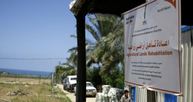
The Israeli occupation authorities continue to turn down applications for work permits by human rights NGOs staff members.
Dozens of human rights researchers and advocates have had their applications for work permits rejected over recent months.
A senior relief officer said the humanitarian situation is expected to take a turn for the worse due to the ban.
Another worker who arrived in Israel last June said the Israeli authorities have refused to grant her a work permit.
A director of operations working for a prominent human rights organization is expected to pop in the occupied West Bank in the next few weeks.
Since the start of 2017 the Israeli Knesset (parliament) approved a ban against foreign workers who support the anti-Israel boycott movement.
Dozens of human rights researchers and advocates have had their applications for work permits rejected over recent months.
A senior relief officer said the humanitarian situation is expected to take a turn for the worse due to the ban.
Another worker who arrived in Israel last June said the Israeli authorities have refused to grant her a work permit.
A director of operations working for a prominent human rights organization is expected to pop in the occupied West Bank in the next few weeks.
Since the start of 2017 the Israeli Knesset (parliament) approved a ban against foreign workers who support the anti-Israel boycott movement.
5 sept 2017
BDS Update: Palestinian Academics Urge European Universities and Scholars to Withdraw from LAW TRAIN
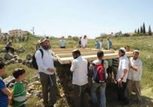
European professors and academic institutions have urged to end cooperation with the EU-funded project over involvement of Israeli institutions known for illegal detention practices, routine torture, and violence against Palestinians.
The following letter was released by the BDS National Committee:
The Palestinian Federation of Unions of University Professors and Employees (PFUUPE) and the Palestinian Campaign for the Academic and Cultural Boycott of Israel (PACBI) call on European professors and academic institutions to immediately withdraw their participation from LAW TRAIN, a project aimed at unifying police interrogation methodologies while ignoring grave human rights violations.
We call on Belgium’s KU Leuven University, Portugal’s INESC-ID research institute, and UK academics who sit on the project’s advisory board to immediately end their involvement in the program out of respect for international law, and Palestinian human rights.
LAW TRAIN is a joint EU-funded project with the Israeli Ministry of Public Security, the Israeli National Police and Israel’s Bar Ilan University.
The Israeli Ministry of Public Security and the Israeli police’s illegal detention practices, routine torture, and use of violence against Palestinian protesters have been criticized by the UN and human rights organisations. It plays an active role in the illegal detention of thousands of Palestinian political prisoners [PDF] in Israeli jails.
The Israeli National Police, which includes the infamously brutal Border Police unit, is deeply implicated in war crimes, extrajudicial executions [PDF] and illegal violent attacks against Palestinians, including the brutal abuse of children detainees, as documented by Human Rights Watch. The police is also responsible for fostering a culture of impunity for Jewish-Israelis who terrorize or otherwise attack Palestinian civilians.
In 95% of such attacks, the police fail to charge offenders.
The presence of the headquarters of the Israeli National Police on occupied Palestinian territory in East Jerusalem constitutes a serious violation of international law that amounts to war crimes. This implicates European participants in LAW TRAIN in violations of international law. It also risks violating the EU’s own policy of nonrecognition of Israeli sovereignty in the OPT and EU guidelines for participation in research programs, since the EU Commission has not been able to confirm that the project’s activities are not taking place on illegally occupied land.
Bar Ilan University is deeply complicit [PDF] in Israel’s oppression of Palestinians. It maintains close ties with the Shin Bet, Israel’s security services, which has been condemned by the UN Committee Against Torture for its use of torture and other illegal interrogation tactics.
Cooperation with these institutions through LAW TRAIN not only disregards Palestinians human rights; it provides a green light for these torture methods to continue, and worse yet, presents them as an example to follow in Europe.
We write to you after more than one thousand Palestinian political prisoners sustained a 40-day hunger strike this summer in protest of Israel’s inhumane conditions including torture, denial of medical care and routine solitary confinement, in which the Israeli National Police and Israeli Ministry of Public Security are directly involved. Israel currently imprisons around 6000 Palestinian political prisoners including 300 children, many of whom are held without trial or charge.
Last August, following civil society pressure, the Portuguese government withdrew all involvement from LAW TRAIN, and we urge other European partners in the project to follow suit.
We call on Belgium’s KU Leuven University, Portugal’s INESC-ID research institute, and UK academics who sit on the project’s advisory board to end their facilitation of Palestinian human rights violations by immediately withdrawing from LAW TRAIN.
Sincerely,
Palestinian Federation of Unions of University Professors and Employees (PFUUPE)
Palestinian Campaign for the Academic and Cultural Boycott of Israel (PACBI)
The following letter was released by the BDS National Committee:
The Palestinian Federation of Unions of University Professors and Employees (PFUUPE) and the Palestinian Campaign for the Academic and Cultural Boycott of Israel (PACBI) call on European professors and academic institutions to immediately withdraw their participation from LAW TRAIN, a project aimed at unifying police interrogation methodologies while ignoring grave human rights violations.
We call on Belgium’s KU Leuven University, Portugal’s INESC-ID research institute, and UK academics who sit on the project’s advisory board to immediately end their involvement in the program out of respect for international law, and Palestinian human rights.
LAW TRAIN is a joint EU-funded project with the Israeli Ministry of Public Security, the Israeli National Police and Israel’s Bar Ilan University.
The Israeli Ministry of Public Security and the Israeli police’s illegal detention practices, routine torture, and use of violence against Palestinian protesters have been criticized by the UN and human rights organisations. It plays an active role in the illegal detention of thousands of Palestinian political prisoners [PDF] in Israeli jails.
The Israeli National Police, which includes the infamously brutal Border Police unit, is deeply implicated in war crimes, extrajudicial executions [PDF] and illegal violent attacks against Palestinians, including the brutal abuse of children detainees, as documented by Human Rights Watch. The police is also responsible for fostering a culture of impunity for Jewish-Israelis who terrorize or otherwise attack Palestinian civilians.
In 95% of such attacks, the police fail to charge offenders.
The presence of the headquarters of the Israeli National Police on occupied Palestinian territory in East Jerusalem constitutes a serious violation of international law that amounts to war crimes. This implicates European participants in LAW TRAIN in violations of international law. It also risks violating the EU’s own policy of nonrecognition of Israeli sovereignty in the OPT and EU guidelines for participation in research programs, since the EU Commission has not been able to confirm that the project’s activities are not taking place on illegally occupied land.
Bar Ilan University is deeply complicit [PDF] in Israel’s oppression of Palestinians. It maintains close ties with the Shin Bet, Israel’s security services, which has been condemned by the UN Committee Against Torture for its use of torture and other illegal interrogation tactics.
Cooperation with these institutions through LAW TRAIN not only disregards Palestinians human rights; it provides a green light for these torture methods to continue, and worse yet, presents them as an example to follow in Europe.
We write to you after more than one thousand Palestinian political prisoners sustained a 40-day hunger strike this summer in protest of Israel’s inhumane conditions including torture, denial of medical care and routine solitary confinement, in which the Israeli National Police and Israeli Ministry of Public Security are directly involved. Israel currently imprisons around 6000 Palestinian political prisoners including 300 children, many of whom are held without trial or charge.
Last August, following civil society pressure, the Portuguese government withdrew all involvement from LAW TRAIN, and we urge other European partners in the project to follow suit.
We call on Belgium’s KU Leuven University, Portugal’s INESC-ID research institute, and UK academics who sit on the project’s advisory board to end their facilitation of Palestinian human rights violations by immediately withdrawing from LAW TRAIN.
Sincerely,
Palestinian Federation of Unions of University Professors and Employees (PFUUPE)
Palestinian Campaign for the Academic and Cultural Boycott of Israel (PACBI)
4 sept 2017
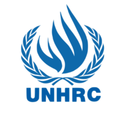
Both Israel and the United States have threatened to cut their funding to the United Nations Human Rights Council if the Council moves ahead with its promise to publish a list of companies that do business in Israeli settlements built on Palestinian land.
The threats come in the midst of a wider crackdown on the Boycott-Divestment-Sanctions movement that was created to pressure Israel economically, in order to push the Israeli government to comply with its obligations under international law.
Gilad Erdan, Israel’s Public Security Minister, issued the threat, which coincided with a similar threat by US Ambassador the the United Nations, Nikki Haley.
The current US President has issued conflicting statements about US policy toward Israeli settlements, speaking in support of settlements while in the company of Zionists, while t other times making statements more consistent with decades of US policy, which holds that Israeli settlements are in violation of past agreements and must be halted before any peace process can begin.
But despite US policy opposing settlements, the US has continually refused any measures to sanction or otherwise censure Israel for expanding settlements. The US has also criticized movements by non-governmental organizations and individuals to boycott Israeli settlement products, and to divest from Israeli companies as paet of the Boycott-Divestment-Sanctions movement.
The threats come in the midst of a wider crackdown on the Boycott-Divestment-Sanctions movement that was created to pressure Israel economically, in order to push the Israeli government to comply with its obligations under international law.
Gilad Erdan, Israel’s Public Security Minister, issued the threat, which coincided with a similar threat by US Ambassador the the United Nations, Nikki Haley.
The current US President has issued conflicting statements about US policy toward Israeli settlements, speaking in support of settlements while in the company of Zionists, while t other times making statements more consistent with decades of US policy, which holds that Israeli settlements are in violation of past agreements and must be halted before any peace process can begin.
But despite US policy opposing settlements, the US has continually refused any measures to sanction or otherwise censure Israel for expanding settlements. The US has also criticized movements by non-governmental organizations and individuals to boycott Israeli settlement products, and to divest from Israeli companies as paet of the Boycott-Divestment-Sanctions movement.
|
|
Most recently, the US Congress has introduced a bill that would criminalize the decision by Americans to boycott Israeli companies, despite the fact that such boycotts are supported by the First Amendment of the US Constitution.
The announcement by the US and Israel that they will cut funding to the UN Security Council comes after the head of the Council, Zeid Ra’ad Al Hussein, said that he will publicly release a list of companies doing business in Israeli settlements. The companies include Caterpillar, G4S Security and HP – all of which have contracts with the Israeli military to support its military occupation of the Palestinian Territories known as the West bank and Gaza Strip. |
All Israeli settlements are considered violations of international law, and of Israel’s obligations as an occupying military power, under the Fourth Geneva Convention.
31 aug 2017

A handful of artists have cancelled their slots at this year's Pop-Kultur festival held in Berlin because of Israeli government involvement.
The Berlin festival accepted €500 in funding from the Israeli embassy in Germany for this year's edition. The embassy's placement on the festival's list of sponsors attracted the attention of Syrian artist Mohammad Abu Hajar, a member of rap group Mazzaj, who announced they would not perform at the festival.
Tunisian artist Emel Mathlouthi, Islam Chipsy & EEK and Hello Psychaleppo, have since followed suit in cancelling their performances at the festival, along with Scottish group Young Fathers, London's Law Holt, Berlin experimental artist Annie Goh and Finnish avant-garde metal band Oranssi Pazuzu.
The BDS (Boycott, Divestment & Sanctions) movement—which seeks to boycott Israel economically and culturally in the wake of its ongoing presence in Palestinian territories—has also called for a boycott of Pop-Kultur.
In a statement on its website, Pop-Kultur downplayed the involvement of the Israeli government.
The Berlin festival accepted €500 in funding from the Israeli embassy in Germany for this year's edition. The embassy's placement on the festival's list of sponsors attracted the attention of Syrian artist Mohammad Abu Hajar, a member of rap group Mazzaj, who announced they would not perform at the festival.
Tunisian artist Emel Mathlouthi, Islam Chipsy & EEK and Hello Psychaleppo, have since followed suit in cancelling their performances at the festival, along with Scottish group Young Fathers, London's Law Holt, Berlin experimental artist Annie Goh and Finnish avant-garde metal band Oranssi Pazuzu.
The BDS (Boycott, Divestment & Sanctions) movement—which seeks to boycott Israel economically and culturally in the wake of its ongoing presence in Palestinian territories—has also called for a boycott of Pop-Kultur.
In a statement on its website, Pop-Kultur downplayed the involvement of the Israeli government.
28 aug 2017
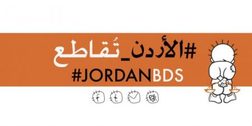
Jordan BDS, today, announced that seven private and public companies have discontinued their service contracts with G4S, the security company. This announcement comes in response to a global boycott call against G4S’ parent company for its complicity in Israel’s regime of occupation and settler-colonialism.
In particular, the companies are:
Jordan BDS, according to the PNN, has thanked the companies, and also thanked other companies and banking institutions in Jordan that have, in the past, ended their contracts or refrained from dealing with this security company, including Aramex, Landmark Hotel, City Mall, Mecca Mall, Taj Mall, amongst others.
In addition, Jordan BDS urged all companies, embassies, hotels, and commercial centers across Jordan that may be engaging with G4S to follow the example of the above institutions.
“We renew our appeal to these entities to adhere to universal ethical principles and cease dealings with G4S, given this security company’s deep complicity not only in Israel’s crimes against humanity but also in violations of the human rights of peoples and refugees around the world,” they said in a statement.
It is noteworthy that G4S was spotted several weeks ago, in Jerusalem, transporting the metal detectors and electronic gates prior to their erection at Al-Aqsa Mosque. G4S is actively training Israeli police forces attacking Palestinians in Jerusalem. G4S holds 50% of Policity Ltd., the company contracted by the Israeli police to build and operate Israel’s National Police Academy, inaugurated in January 2015.
Finally, Jordan BDS renewed its call to different United Nations (UN) bodies: The United Nations Entity for Gender Equality and the Empowerment of Women (UN Women) and the local and regional offices of the United Nations Development Programme (UNDP Jordan and UNDP MENA), which continue to contract with G4S, to terminate their agreements immediately, in line with the other four UN bodies in Jordan that have already taken this step.
In particular, the companies are:
- Jordan Hospital Medical Centre
- Abdali Boulevard Company & MAB Facilities Management
- Jordan Dubai Islamic Bank/Safwa
- Specialized Technical Services
- Orange
- IKEA
- A leading local bank
Jordan BDS, according to the PNN, has thanked the companies, and also thanked other companies and banking institutions in Jordan that have, in the past, ended their contracts or refrained from dealing with this security company, including Aramex, Landmark Hotel, City Mall, Mecca Mall, Taj Mall, amongst others.
In addition, Jordan BDS urged all companies, embassies, hotels, and commercial centers across Jordan that may be engaging with G4S to follow the example of the above institutions.
“We renew our appeal to these entities to adhere to universal ethical principles and cease dealings with G4S, given this security company’s deep complicity not only in Israel’s crimes against humanity but also in violations of the human rights of peoples and refugees around the world,” they said in a statement.
It is noteworthy that G4S was spotted several weeks ago, in Jerusalem, transporting the metal detectors and electronic gates prior to their erection at Al-Aqsa Mosque. G4S is actively training Israeli police forces attacking Palestinians in Jerusalem. G4S holds 50% of Policity Ltd., the company contracted by the Israeli police to build and operate Israel’s National Police Academy, inaugurated in January 2015.
Finally, Jordan BDS renewed its call to different United Nations (UN) bodies: The United Nations Entity for Gender Equality and the Empowerment of Women (UN Women) and the local and regional offices of the United Nations Development Programme (UNDP Jordan and UNDP MENA), which continue to contract with G4S, to terminate their agreements immediately, in line with the other four UN bodies in Jordan that have already taken this step.
22 aug 2017
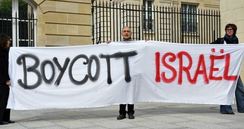
The Trump administration is urging the United Nations not to publish a blacklist of international firms that do business in Israeli settlements on Palestinian land, the Washington Post reported on Monday.
According to the Washington Post, the U.N. Human Rights Council voted to approve the database of companies last year, over objections from the United States and Israel, which describe the list as a prelude to anti-Israel boycotts.
American companies on the list drawn up by the Geneva-based council include Caterpillar, TripAdvisor, Priceline.com, Airbnb and others, according to people familiar with it. It is not clear whether the list has been finalized.
Zeid Ra’ad Al Hussein, the U.N. high commissioner for human rights, has told U.S. officials he plans to publish the list by the end of the year and has asked for comments by Sept. 1 from countries where affected firms are headquartered, the same source added.
Zeid, a Jordanian diplomat who was his country’s ambassador to the United States, had agreed to one postponement this year, partly in response to a U.S. request. He has indicated he plans to move ahead now, arguing that the list is a resource for consumers and travelers.
In a statement Monday, Israel’s U.N. ambassador, Danny Danon, called the council’s moves toward publication of the list “an expression of modern anti-Semitism.”
In June, Zeid told the council that the Israeli occupation that began in 1967 violates international law and “has denied the Palestinians many of their most fundamental freedoms, and has often been brutal.”
According to the Washington Post, the U.N. Human Rights Council voted to approve the database of companies last year, over objections from the United States and Israel, which describe the list as a prelude to anti-Israel boycotts.
American companies on the list drawn up by the Geneva-based council include Caterpillar, TripAdvisor, Priceline.com, Airbnb and others, according to people familiar with it. It is not clear whether the list has been finalized.
Zeid Ra’ad Al Hussein, the U.N. high commissioner for human rights, has told U.S. officials he plans to publish the list by the end of the year and has asked for comments by Sept. 1 from countries where affected firms are headquartered, the same source added.
Zeid, a Jordanian diplomat who was his country’s ambassador to the United States, had agreed to one postponement this year, partly in response to a U.S. request. He has indicated he plans to move ahead now, arguing that the list is a resource for consumers and travelers.
In a statement Monday, Israel’s U.N. ambassador, Danny Danon, called the council’s moves toward publication of the list “an expression of modern anti-Semitism.”
In June, Zeid told the council that the Israeli occupation that began in 1967 violates international law and “has denied the Palestinians many of their most fundamental freedoms, and has often been brutal.”
20 aug 2017
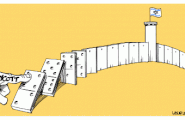
Over 40 Portuguese photographers, teachers of photography and photography students pledged on Saturday, which marked World Photography Day, not to accept professional invitations or financing from Israel, and to” refuse to collaborate with Israeli cultural institutions complicit in Israel’s regime of occupation, colonialism and apartheid,” according to the official website of the Boycott Divestment and Sanctions (BDS) movement.
According to the statement from the BDS movement, the pledge was the “first of its kind,” as the photographers pledged to boycott Israel “until it complies with international law and respects the human rights of Palestinians.”
Among the pledge supporters were Jo o Pina, winner of the 2017 Pr mio Esta o Imagem Viana do Castelo, Portugal’s only photojournalism award, TV personality and travel photographerNuno Lobito, Miguel Carri o, winner of the 2012 Concelho da Bienal de Vila Franca de Xira award, Jos Soudo, a veteran Photography teacher and Historian, and Jo o Henriques, winner of the 2015 Fnac New Talents Award.
According to Ma’an News Agency, the statement quoted Carri o as saying: “Having witnessed first-hand the crimes Israel is committing daily against Palestinians, signing up to this initiative has become a natural step. It is fundamental to promote this effort through all means possible.”
“It is time for Israel’s brand of apartheid to enjoy the same treatment as South African apartheid and be target of a comprehensive international boycott until it respects human rights,” the statement quoted Lobita as saying.
“Photographers can no longer be silent about the treatment of their Palestinian colleagues living under an indefensible occupation that has lasted for over half a century. Palestinians have called for solidarity through boycotts and this pledge is our practical contribution to their struggle.”
The statement noted the struggles of Palestinian photographers and journalists under the Israeli occupation, highlighted that artists have been denied visas by the Israeli military establishment, preventing them from participating in conferences and performances internationally, in addition to being detained at checkpoints, arrested, having their equipment broken, and being “exposed to the same violence perpetrated by the Israeli army on all Palestinians.”
The BDS movement was founded in 2005 by a swath of Palestinian civil society as a peaceful movement to restore Palestinian rights in accordance with international law through strategies of boycotting Israeli products and cultural institutions, divesting from companies complicit in violations against Palestinians, and implementing state sanctions against the Israeli government.
BDS activists target companies that act in compliance with Israel’s illegal occupation of the West Bank, including East Jerusalem, and encourage supporters to avoid buying Israeli products in order to put pressure on the Israeli government to end the half-century occupation of the West Bank and East Jerusalem the decade-long Israeli siege on the Gaza Strip.
As support for the movement has grown, the Israeli government has introduced anti-BDS policies, including passing a law in March banning foreigners who have openly expressed support in BDS from entering the country.
According to the statement from the BDS movement, the pledge was the “first of its kind,” as the photographers pledged to boycott Israel “until it complies with international law and respects the human rights of Palestinians.”
Among the pledge supporters were Jo o Pina, winner of the 2017 Pr mio Esta o Imagem Viana do Castelo, Portugal’s only photojournalism award, TV personality and travel photographerNuno Lobito, Miguel Carri o, winner of the 2012 Concelho da Bienal de Vila Franca de Xira award, Jos Soudo, a veteran Photography teacher and Historian, and Jo o Henriques, winner of the 2015 Fnac New Talents Award.
According to Ma’an News Agency, the statement quoted Carri o as saying: “Having witnessed first-hand the crimes Israel is committing daily against Palestinians, signing up to this initiative has become a natural step. It is fundamental to promote this effort through all means possible.”
“It is time for Israel’s brand of apartheid to enjoy the same treatment as South African apartheid and be target of a comprehensive international boycott until it respects human rights,” the statement quoted Lobita as saying.
“Photographers can no longer be silent about the treatment of their Palestinian colleagues living under an indefensible occupation that has lasted for over half a century. Palestinians have called for solidarity through boycotts and this pledge is our practical contribution to their struggle.”
The statement noted the struggles of Palestinian photographers and journalists under the Israeli occupation, highlighted that artists have been denied visas by the Israeli military establishment, preventing them from participating in conferences and performances internationally, in addition to being detained at checkpoints, arrested, having their equipment broken, and being “exposed to the same violence perpetrated by the Israeli army on all Palestinians.”
The BDS movement was founded in 2005 by a swath of Palestinian civil society as a peaceful movement to restore Palestinian rights in accordance with international law through strategies of boycotting Israeli products and cultural institutions, divesting from companies complicit in violations against Palestinians, and implementing state sanctions against the Israeli government.
BDS activists target companies that act in compliance with Israel’s illegal occupation of the West Bank, including East Jerusalem, and encourage supporters to avoid buying Israeli products in order to put pressure on the Israeli government to end the half-century occupation of the West Bank and East Jerusalem the decade-long Israeli siege on the Gaza Strip.
As support for the movement has grown, the Israeli government has introduced anti-BDS policies, including passing a law in March banning foreigners who have openly expressed support in BDS from entering the country.
